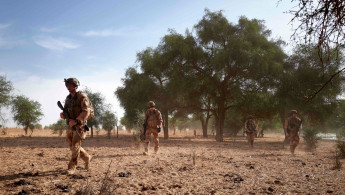Follow us on Facebook, Twitter and Instagram to stay connected
Jihadists net $140 million from Burkina gold mine raids
Jihadists have made $140 million from attacks on gold mines in Burkina Faso since 2016, according to a report commissioned by the government.
Gold mining has become increasingly vital to the economy of the landlocked West African country, which was once dependent on cotton exports for foreign earnings.
But the industry has also become a welcome source of funding for jihadists and other armed movements in areas lacking in central authority, according to the report's author Ollo Kambou of the Burkina Economic and Social Observatory (OES).
The report estimated the total cost of the attacks in terms of damage to property and wider effects to be 600 billion CFA francs ($1.1 billion) since 2016, roughly one third of the state's entire revenue.
A spiral of jihadist violence began five years ago in parallel with a gold rush.
From 0.40 tonnes in 2007, gold production rose to more than 52 tonnes in 2018, according to Burkina's Chamber of Mines.
|
The sector made up 11.4 percent of economic output in 2018. It accounts for 9,200 direct jobs and 26,100 indirect jobs, while the gold panning sub-sector employs 1.5 million people.
But jihadist attacks are hindering production at artisanal mines.
"Terrorist organisations exploit natural resources such as gold," Kambou said.
The mines also give jihadists access to explosives.
More than 1,100 people have died and more than one million have fled their homes in Burkina Faso since 2015 when jihadists crossed from neighbouring Mali and began their attacks.
Swathes of territory are now outside of the control of central authorities.
The violence has been attributed to jihadists affiliated with Al-Qaeda or the Islamic State group.
While those groups are using the gold to funding terrorism, Kambou said that most attacks are financed from abroad.
"Money transfer companies and non-profit organisations are the main channels used to finance terrorist attacks in Burkina Faso," he said, pointing out that the groups benefit from the fact that much of the economy is cash-based.





 Follow the Middle East's top stories in English at The New Arab on Google News
Follow the Middle East's top stories in English at The New Arab on Google News


